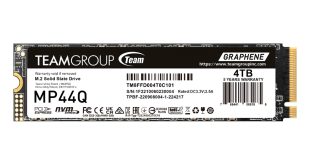It doesn’t matter how good any of the synthetic suites are, the real meat of the testing has to be under absolute real world conditions. This proves difficult as to record results we have to narrow down fluctuation. Therefore while we would say these are the most useful results to get from this review, there is always going to be a slight margin for error – its not absolutely scientific.
Firstly we installed a fresh copy of Windows 7 Ultimate 64bit Edition onto each of the drives, no programs were installed, just the operating system and a clean update from Microsoft with all patches and security fixes. The machine was then shut down and once started up we recorded boot times – until we reached a working desktop. We used a digital watch for this and repeated the test five times for each drive – once we had these five results we averaged the results and took that for the final figure. We also included a standard £70 Western Digital 1TB hard drive for comparison purposes.
In Raid 0 – our V25 drives outperform the single X25 by 2 seconds. This is a great result and while not really noticeable ‘real world' shows the excellent striped performance from the drives.
Snow Leopard 10.6.3. Boot Times
Not everyone uses Windows 7, and although TRIM is only supported by this Operating system, I like to expand results a little when possible. I therefore used my Macintosh MacBook pro 17 inch, Generation 5.1 which is based around a 2.93ghz Core 2 Duo processor with 9600m graphics. There is 8GB of DDR3 ram in this machine with a full 3 Gigabit link speed over the nVidia MCP79 AHCI. I also enabled the full 64bit Kernel and Extensions – if you want to read more, check out this article.
Sadly as our machine is a laptop with only one drive connector we have no way of testing Raid 0 performance.
The X25-V gives a final result of 23 seconds – 4 seconds less than the OCZ Vertex, which is very good. Being perfectly honest however we would find a 40GB SSD drive hard to recommend as a solitary laptop drive as it doesn't leave much room for files, most of the drive space would be consumed by the operating system and primary applications. A USB2 storage drive as an added extra would probably be the best option.
 KitGuru KitGuru.net – Tech News | Hardware News | Hardware Reviews | IOS | Mobile | Gaming | Graphics Cards
KitGuru KitGuru.net – Tech News | Hardware News | Hardware Reviews | IOS | Mobile | Gaming | Graphics Cards




